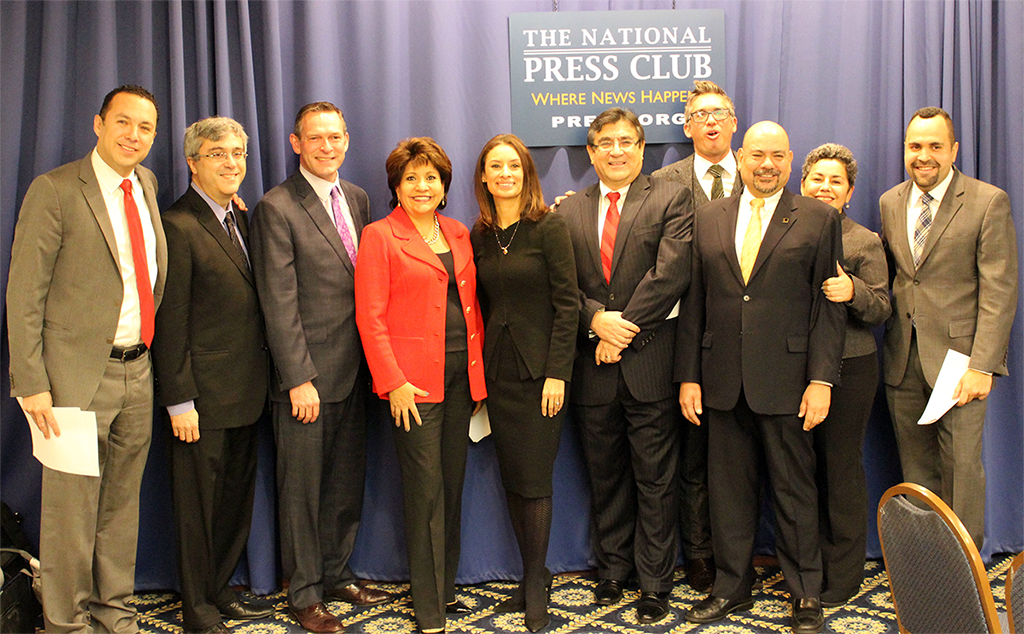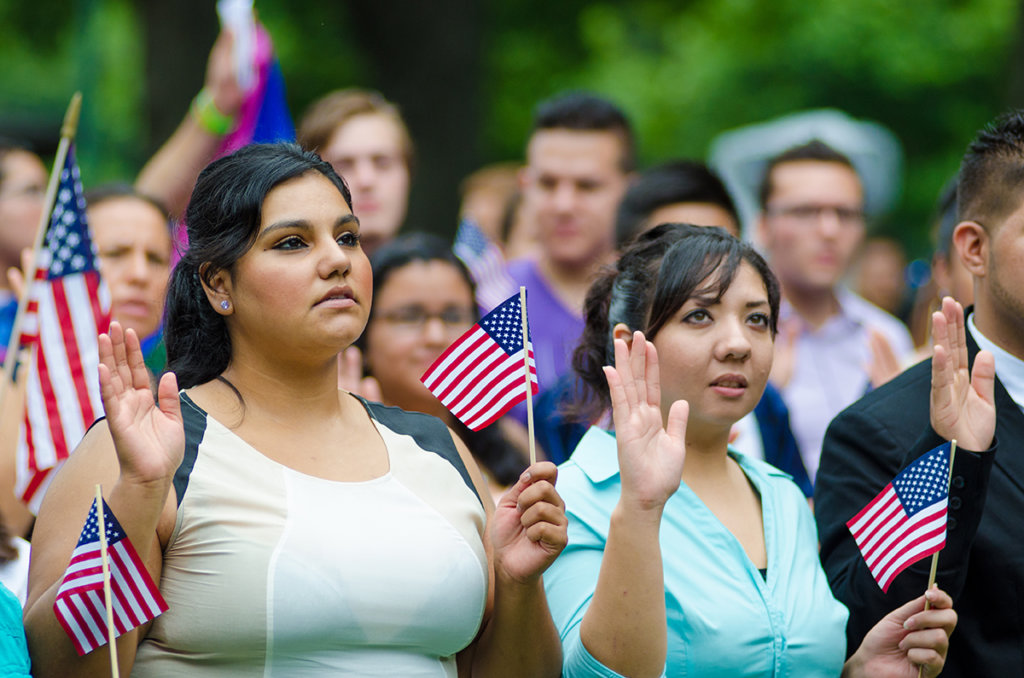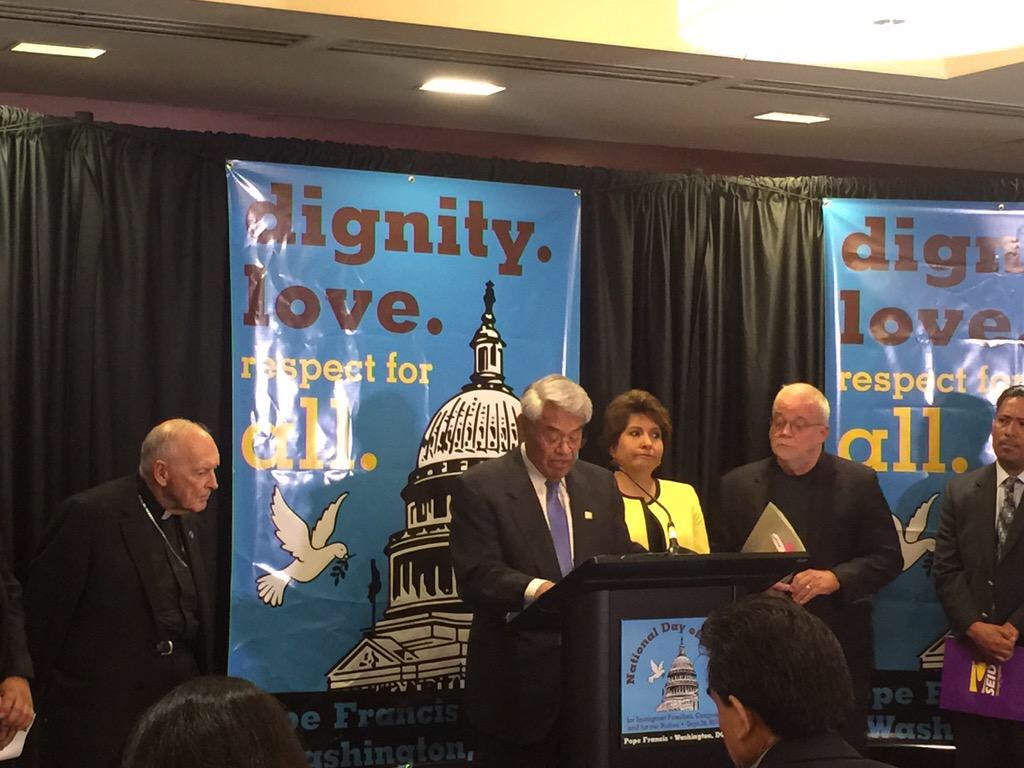This Week in Immigration Reform — Week Ending February 19
Week Ending February 19
This week in immigration: NCLR partners with national organizations to galvanize the Latino vote; Pope Francis visits U.S.-Mexico border; the impact of Justice Scalia’s death on administrative relief; and NCSL unveils annual report on state immigration changes.
NCLR partners with national Latino organizations to unveil “Our Vote, Our Future”: With an estimated 27 million Latinos eligible to vote in 2016, the National Latino Civic Engagement Table announced a new civic engagement partnership intended to galvanize Hispanics to register and vote in the upcoming primaries and general election. In addition to NCLR, Civic Engagement Table partners include the Hispanic Federation, Labor Council for Latin American Advancement (LCLAA), Latino Victory Foundation, the League of United Latin American Citizens (LULAC), Mi Familia Vota Education Fund (MFVEF), National Association of Latino Elected and Appointed Officials (NALEO) Educational Fund, and Voto Latino.
At a press conference announcing the partnership, NCLR President and CEO Janet Murguía said “NCLR is proud to join with our Latino sister organizations to grow the voice of those Americans interested in advancing real solutions and rejecting fear-mongering. NCLR is helping eligible Latinos become voters, using new technologies like our NCLR/mitú voter registration app, door-to-door canvassing and community issue campaigns and culturally-competent outreach and social media, to maximize our reach as well as the Latino community’s critical voice in American politics .”
Pope Francis visits U.S.-Mexico border to stand with immigrants: Pope Francis completed a six-day visit to Mexico earlier this week, spending significant time focusing on immigration. The Pope spent Wednesday at the border between the United States and Mexico, where he blessed immigrants and called for understanding. “The human tragedy that is forced migration is a global phenomenon today,” he said at the border. “This crisis, which can be measured in numbers and statistics, we want instead to measure with names, stories, families.” For more, be sure to read this op-ed published in the Sacramento Bee urging the Supreme Court Justices to heed the Pope’s message as they hear arguments in the U.S. v Texas case.
Justice Antonin Scalia’s death unlikely to have significant impact on United States v. Texas, legal scholars say: Despite the news of Supreme Court Associate Justice Antonin Scalia’s passing last weekend, those covering the case surrounding immigration executive action say the Justice’s death is unlikely to change the expected outcome. With four justices nominated each by Democratic and Republican presidents, the case could result in a 4-4 tie. In that case, the lower court’s original decision is upheld, though without precedent for future cases to follow (the 5th Circuit Court of Appeals ruled against the President’s executive actions in November of last year). Stephen Yale-Loehr, an immigration law professor at Cornell University Law School, told Bloomberg that Justice Anthony Kennedy, often seen as the Supreme Court’s “swing vote,” could once again be the deciding vote in the case.
NCSL releases report on 2015 state immigration laws: State legislatures continued to tackle immigration issues directly in 2015, with the number of new immigration laws increasing by 26 percent compared to 2014. The National Conference of State Legislatures tracked state immigration law changes seen over the course of the last year, compiling its findings in a report released this week. Notable trends include states adding portions of the federal naturalization exam to high school civics classes, granting licenses to practice law for DACA recipients, and resolutions requesting support from Congress or the Administration on the topics of immigration reform and asylum-seekers.




